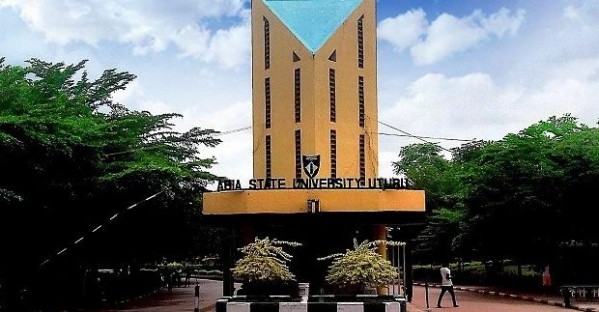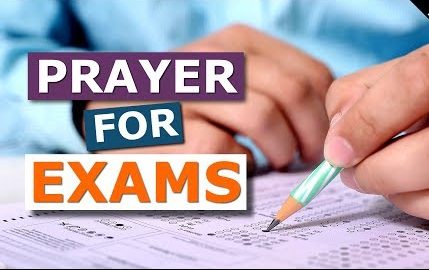20 Courses in Nigeria Universities You Can Study Without Mathematics
20 Courses in Nigeria Universities You Can Study Without Mathematics: Mathematics is a subject that many students find difficult and stressful. Some students may even have a phobia of mathematics and avoid it at all costs. However, mathematics is also a requirement for admission into many courses and programs in Nigerian universities.
So, what can you do if you want to pursue higher education but you are not good at mathematics or you don’t have a credit pass in mathematics in your O’level results? Don’t worry, there are still some courses that you can study without mathematics or with little mathematics in Nigerian universities. In this post, we will list 20 of such courses and give you some information about them.
Courses that Don’t Require Mathematics
These are courses that do not require mathematics as a compulsory subject for admission. You can study these courses with a D7, E8, or F9 in mathematics in your O’level results, as long as you have the necessary requirements in other subjects. These courses are mostly in the arts, humanities, and social sciences fields. Here are some examples of these courses:
- Languages (English, Yoruba, Hausa, Igbo, and others): These are courses that focus on the study of languages, literature, culture, and communication. You will learn how to speak, write, read, and analyze different languages and texts. You will also learn about the history, society, and politics of the people who speak these languages. Some career options for graduates of these courses include teaching, translation, interpretation, journalism, publishing, diplomacy, and tourism.
- Criminology and Security Studies: This is a course that deals with the study of crime, criminals, law enforcement, security, and justice. You will learn about the causes, effects, prevention, and control of crime and violence in society. You will also learn about the various agencies and institutions involved in maintaining security and order. Some career options for graduates of this course include police officer, detective, security officer, correctional officer, forensic analyst, lawyer, and researcher.
- Peace Studies and Conflict Resolution: This is a course that explores the issues of peace and conflict in the world. You will learn about the sources, dynamics, and consequences of conflicts at different levels (individuals, groups, nations). You will also learn about the strategies and methods of resolving conflicts peacefully and promoting peace and harmony. Some career options for graduates of this course include peace activist, mediator, negotiator, humanitarian worker, diplomat, and counselor.
- Mass Communication: This is a course that covers the study of various forms and channels of communication in society. You will learn about the theories, principles, and practices of communication in different contexts (media, public relations, advertising). You will also learn how to produce and analyze different types of messages (news, reports, features) for different audiences and purposes. Some career options for graduates of this course include journalist, reporter, editor, broadcaster, producer, public relations officer, advertising executive, and media consultant.
- French and International Relations: This is a course that combines the study of French language and culture with the study of international affairs. You will learn how to communicate effectively in French and understand the social, political, and economic aspects of Francophone countries. You will also learn about the history, theory, and practice of international relations and diplomacy. Some career options for graduates of this course include foreign service officer, translator, interpreter, tour guide, and international business executive.
- Christian Theology: This is a course that focuses on the study of Christian faith, doctrine, and practice. You will learn about the sources, development, and interpretation of Christian scriptures, traditions, and teachings. You will also learn about the history, diversity, and challenges of Christianity in different contexts and cultures. Some career options for graduates of this course include clergy, pastor, missionary, theologian, teacher, and counselor.
- Islamic Studies: This is a course that concentrates on the study of Islam as a religion, culture, and civilization. You will learn about the origins, beliefs, rituals, and laws of Islam. You will also learn about the history, diversity, and issues of Muslim communities in different regions and periods. Some career options for graduates of this course include imam, scholar, teacher, preacher, activist, and diplomat.
- Political Science: This is a course that examines the study of politics and government at different levels (local, national, international). You will learn about the concepts, theories, and methods of political analysis. You will also learn about the institutions, processes, and actors involved in political decision-making and action. Some career options for graduates of this course include politician, public servant, analyst, consultant, lobbyist, and activist.
- History: This is a course that investigates the study of the past and its relevance to the present and future. You will learn about the events, people, and ideas that shaped the history of different regions and periods. You will also learn how to use historical sources, evidence, and methods to construct and evaluate historical arguments and narratives. Some career options for graduates of this course include historian, archivist, curator, teacher, writer, and journalist.
- Philosophy: This is a course that explores the study of the fundamental questions and problems of human existence and knowledge. You will learn about the main branches, topics, and arguments of philosophy (logic, ethics, metaphysics, epistemology). You will also learn how to think critically, creatively, and logically about various philosophical issues and perspectives. Some career options for graduates of this course include philosopher, teacher, writer, lawyer, and counselor.
- Social Studies: This is a course that covers the study of various aspects of human society and social behavior. You will learn about the concepts, theories, and methods of social sciences (sociology, anthropology, psychology). You will also learn about the structure, function, and change of social groups, institutions, and relationships. Some career options for graduates of this course include social worker, teacher, researcher, counselor, and community leader.
- Psychology: This is a course that deals with the study of the mind and behavior of humans and animals. You will learn about the biological, cognitive, emotional, and social factors that influence mental processes and actions. You will also learn how to apply psychological knowledge and skills to various fields and situations (education, health, work, sports). Some career options for graduates of this course include psychologist, counselor, therapist, teacher, and researcher.
- Law: This is a course that involves the study of the rules and principles that govern the conduct and relations of individuals and groups in society. You will learn about the sources, types, and functions of law (constitutional, criminal, civil, international). You will also learn how to interpret, apply, and enforce law in different contexts and cases (courts, tribunals, arbitration). Some career options for graduates of this course include lawyer, judge, magistrate, prosecutor, solicitor, and advocate.
Science Courses that Require Little Mathematics
These are courses that require mathematics as a compulsory subject for admission, but do not involve much calculation or complexity in mathematics during the course of study. These courses are mostly in the biological and environmental sciences fields. Here are some examples of these courses:
- Nursing: This is a course that prepares you for the profession of providing care and support to individuals and communities in health-related situations. You will learn about the theory and practice of nursing in different settings (hospitals, clinics, homes). You will also learn how to assess, plan, implement, and evaluate nursing interventions for various health conditions and needs. Some career options for graduates of this course include nurse, midwife, nurse educator, nurse manager, and nurse researcher.
- Biology: This is a course that studies the science of life and living organisms. You will learn about the structure, function, diversity, evolution, and interaction of living things at different levels (molecules, cells, tissues, organs, systems). You will also learn how to use biological tools and techniques to conduct experiments and investigations on various biological phenomena. Some career options for graduates of this course include biologist, microbiologist, biochemist, geneticist, ecologist, and zoologist.
- Zoology: This is a course that focuses on the science of animals. You will learn about the anatomy, physiology, behavior, ecology, evolution, and classification of animals. You will also learn how to observe, collect, identify, and analyze animal specimens and data. Some career options for graduates of this course include zoologist, animal scientist, wildlife biologist conservationist veterinarian and animal trainer.
- Botany: This is a course that concentrates on the science of plants. You will learn about the morphology physiology reproduction genetics and distribution of plants. You will also learn how to grow cultivate harvest and utilize plants for various purposes (food medicine industry environment). Some career options for graduates of this course include botanist plant scientist horticulturist agronomist and plant breeder.
- Anatomy: This is a course that deals with the science of the structure and organization of living organisms. You will learn about the gross microscopic and developmental anatomy of humans and animals. You will also learn how to use anatomical tools and methods to examine dissect and illustrate anatomical specimens. Some career options for graduates of this course include anatomist physiologist pathologist surgeon and radiologist.
- Geography: This is a course that studies the science of the earth and its features. You will learn about the physical human and environmental aspects of geography.
Conclusion
As you can see, there are many courses that you can study without mathematics or with little mathematics in Nigerian universities. These courses offer you a variety of opportunities and benefits for your academic and career development. However, you should also consider your interests, abilities, and goals when choosing a course to study. You should also check the specific requirements and curriculum of each course and university before applying. We hope that this post has helped you to find some courses that suit your preferences and aspirations.
FAQs
What are the general requirements for admission into Nigerian universities?
The general requirements for admission into Nigerian universities are:
– You must have at least five credit passes in relevant subjects, including English Language, in your O’level results (WAEC, NECO, GCE, or NABTEB).
– You must have a valid UTME score and meet the cut-off mark of your chosen course and university.
– You may also need to pass the post-UTME screening or aptitude test of your chosen university.
– Some courses may have additional requirements, such as a pre-degree or diploma program, an interview, or a portfolio.
How can I improve my mathematics skills if I want to study a course that requires mathematics?
If you want to improve your mathematics skills, you can try the following tips:
– Review the topics and concepts that you have learned in your previous classes and textbooks.
– Practice solving different types of problems and exercises regularly.
– Seek help from your teachers, tutors, classmates, or online resources when you encounter difficulties or doubts.
– Use mnemonics, formulas, tricks, and shortcuts to remember and apply mathematical rules and methods.
– Develop a positive attitude and confidence towards mathematics and avoid negative thoughts and emotions.
What are some benefits of studying mathematics?
Some benefits of studying mathematics are:
– Mathematics helps you to develop logical thinking, problem-solving, and analytical skills that are useful for various fields and situations.
– Mathematics enhances your creativity, curiosity, and imagination by exposing you to abstract and complex ideas and patterns.
– Mathematics enables you to understand and appreciate the beauty and order of nature and science by revealing the underlying mathematical principles and relationships.
– Mathematics opens up many opportunities and possibilities for your academic and career advancement by giving you access to a wide range of courses and professions.



